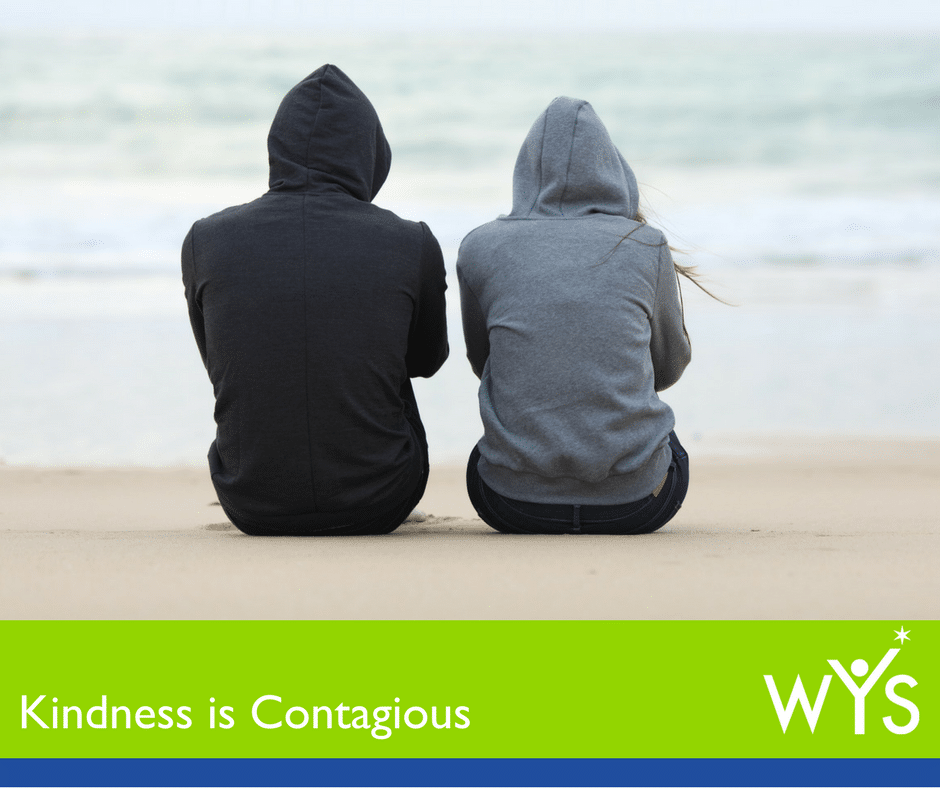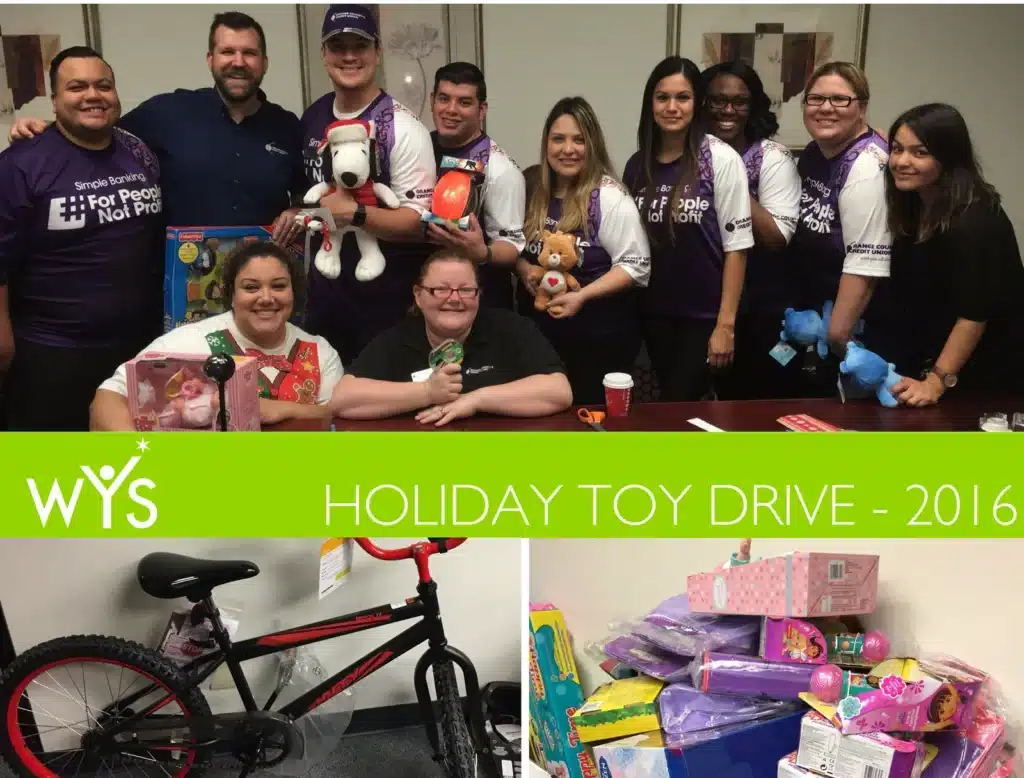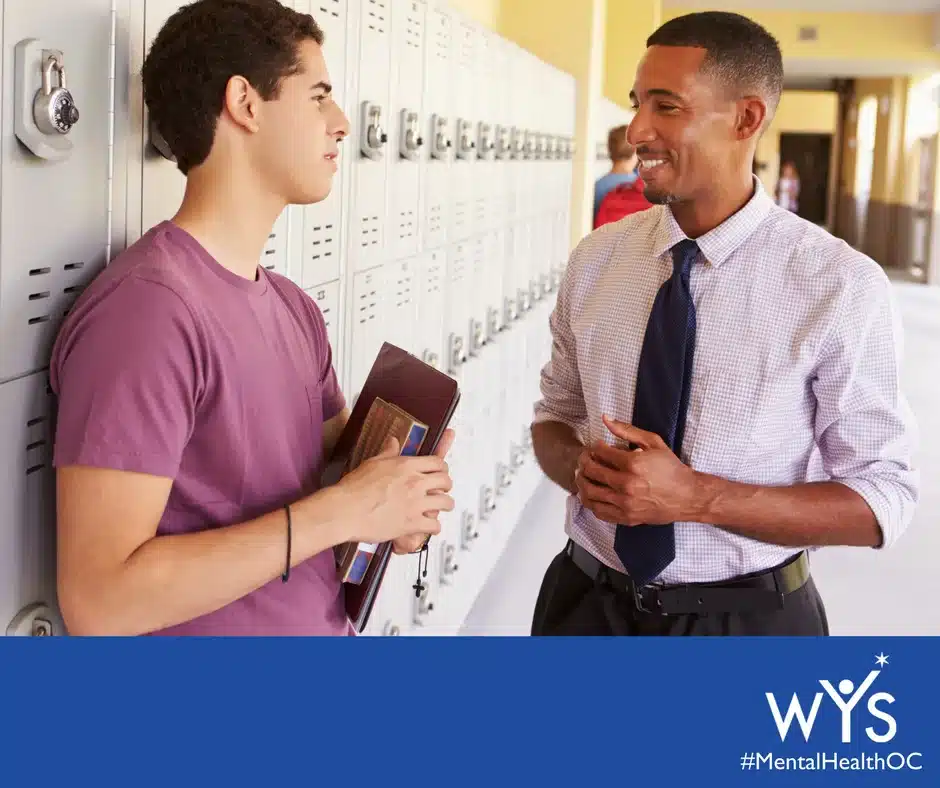
Kindness is Contagious
Scientific American published an article titled “Kindness Contagion – Witnessing kindness inspires kindness, causing it to spread like a virus.” The article shares the details of research they conducted on positive conformity. How people will model the behavior of others and if they see them “doing good” they will follow suit. Sometimes this includes financial donations, more often it is by observing positive action and doing the same thing, perhaps a neighbor starts to eat a more healthy diet, loses weight, feels better and witnessing this change inspires you to do the same. You drive by a group cleaning up the greenway on the side of the road, this gets you to thinking I should to that, too.
One phrase that deeply resonated was that people “‘catch’ cooperation and generosity from others.” The article goes into much greater detail and we know firsthand that it happens. As an organization, we model these characteristics with our clients and collaborative partnerships. When you see kindness in action, it makes you happier. The old adage “one good deed usually leads to another” is true. We see this every day.
Kindness in Action
This image is a compilation of our 2016 annual holiday toy drive that provided more than 700 toys to children in Orange County, CA. In some cases, these were the only holiday gifts these children received. We host this event each year. One of the biggest impacts on the WYS team is working alongside the volunteers who join us to wrap gifts. Local businesses collect gifts or generously donate lunch/snacks to keep the wrapping elves full of energy. We participant in many events throughout the year, but this is always a highlight and a stellar example of the collaborative approach we strive to bring to all we do.

We are gearing up for our 2017 Holiday Toy Drive, if you would like to volunteer please email our Volunteer Coordinator, Amy Chi, at [email protected]. Toy donations can be dropped off at any WYS location.
Kindness and Self-Esteem
Kindness increases self-esteem, optimism, and reduces anxiety. Whether you are being kind to others, yourself or witnessing kindness you will receive a little positive boost of self-esteem. Think about how easy it is to do something nice for someone and how you can incorporate acts of kindness into your day, even when you are having a bad day.
An easy and impactful set-of rules to follow are the Seven Golden Rules of Kindness to Improve Self-Esteem:
- Treat others how you like to be treated.
- Be kind unconditionally. Be kind because you want to be kind. Do not expect anything in return and do not use kindness to get what you want.
- See the good in people, including yourself. Nobody is perfect but everyone has some good qualities. Make an effort to notice the positives.
- Genuinely care for others. It’s important that kindness is genuine.
- Put yourself in the other person’s shoes. Learn to see other peoples’ point of view. Be curious and listen without judging, even when you don’t agree. Imagine you are the other person and have empathy.
- Respect other people and yourself. Be respectful at all times.
- Treat yourself as you would a best friend. Be kind to yourself because you are worth it.
Cultivating Kindness in School
Kindness can be taught and children and teens can gain an understanding of the power of being kind and the negative impact when we are unkind. A simple act of kindness can make a significant difference in a day, a week, a school year, and a life.
Teachers and educators have a unique opportunity to teach a kindness curriculum which can include classroom habits and activities or reach out to WYS for assistance.
Here are eight simple suggestions for teaching kindness:
 Greet students daily. Get to know them. Let them see that you’re happy to see them.
Greet students daily. Get to know them. Let them see that you’re happy to see them.- If your school has a vision statement, carry it through into the classroom. As a group activity, have the students help add to it by creating a list of positive behaviors such as respect, empathy, responsibility, and kindness and avoid negative behaviors such as bullying and harassment.
- Foster classroom community, give them the space to get to know each other.
- Build a fun environment where students feel comfortable to share a joke or a funny story.
- Fill the walls with meaningful, age-appropriate inspirational posters or student work. Discuss what surrounds them.
- Compliment students when they have out-of-the-box ideas, stretch their vocabulary or nail a challenging math problem.
- When a student is having a hard time understanding an assignment pair them up with another student who can help them. Encourage them to do this on their own next time, too.
- Create a kindness challenge. Inspire the class to bring their gratitude and kind habits to other classes, the lunchroom, gym, and HOME.
Don’t forget to smile often… smiling is contagious, too!
We want to know your stories of kindness and how you spread them throughout the world. Please share them on our Facebook Page.

Lorry Leigh Belhumeur, Ph.D.
Chief Executive Officer
Western Youth Services






